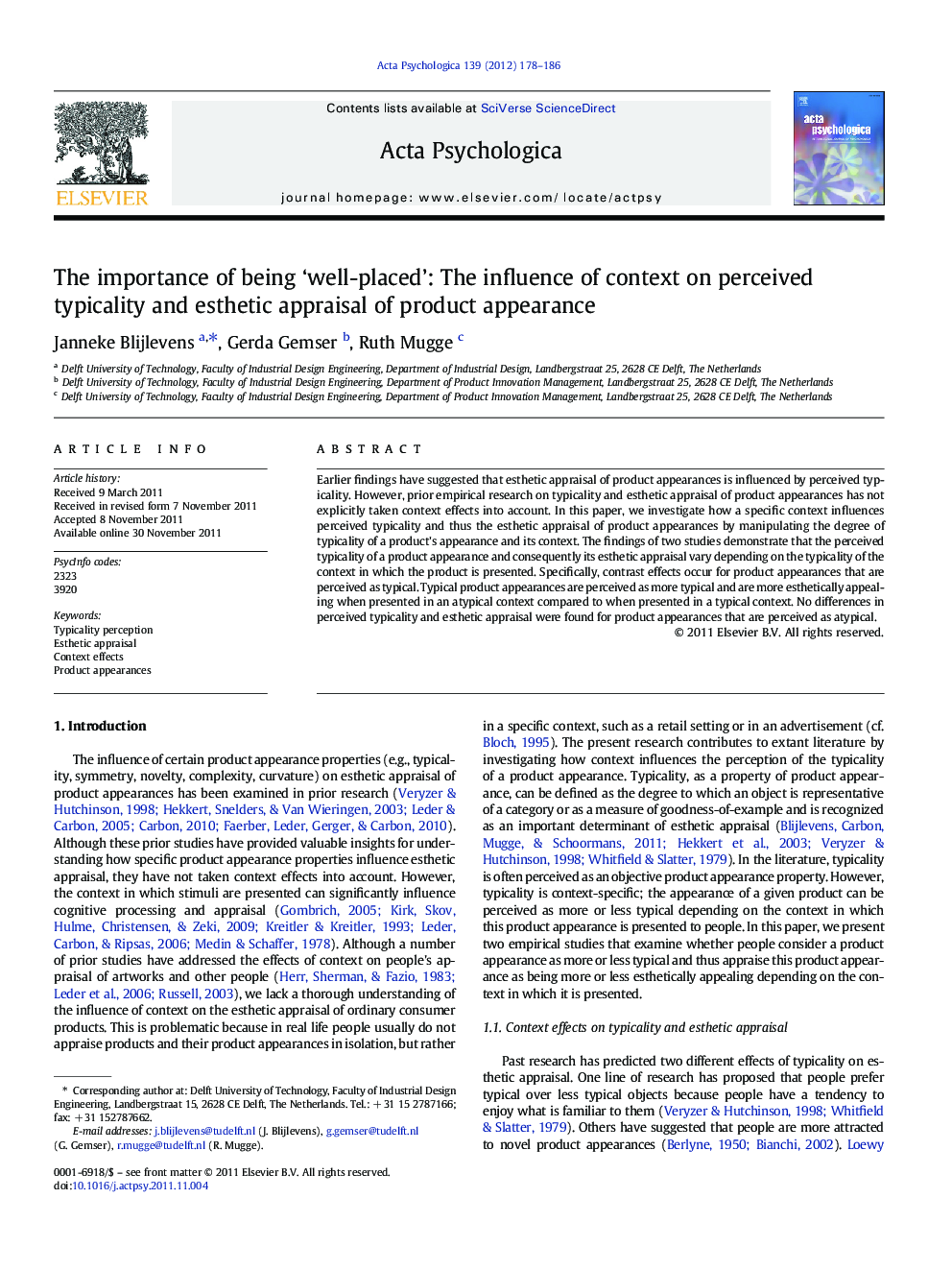| Article ID | Journal | Published Year | Pages | File Type |
|---|---|---|---|---|
| 920106 | Acta Psychologica | 2012 | 9 Pages |
Earlier findings have suggested that esthetic appraisal of product appearances is influenced by perceived typicality. However, prior empirical research on typicality and esthetic appraisal of product appearances has not explicitly taken context effects into account. In this paper, we investigate how a specific context influences perceived typicality and thus the esthetic appraisal of product appearances by manipulating the degree of typicality of a product's appearance and its context. The findings of two studies demonstrate that the perceived typicality of a product appearance and consequently its esthetic appraisal vary depending on the typicality of the context in which the product is presented. Specifically, contrast effects occur for product appearances that are perceived as typical. Typical product appearances are perceived as more typical and are more esthetically appealing when presented in an atypical context compared to when presented in a typical context. No differences in perceived typicality and esthetic appraisal were found for product appearances that are perceived as atypical.
► This paper investigates context effects on esthetic appraisal of product appearances. ► Contrast effects were found for product appearances perceived as typical. ► Esthetic appraisal is higher when presented in atypical versus typical context. ► Context effect on esthetic appraisal is mediated by perceived typicality. ► No context effects were found for product appearances perceived as atypical.
